Have you ever noticed how a few drinks can magically turn a room full of strangers into your best friends? Alcohol has a fascinating way of breaking down barriers and unleashing our inner social butterfly. But, like with most things in life, moderation is key. In this blog post, we will explore the complex relationship between alcohol and social anxiety, its effects on our brain, and why alcohol makes you more social, as well as how it can both help and hinder our social interactions. So grab your favorite beverage and let’s dive into the world of responsible social drinking.
Short Summary
- Alcohol can reduce anxiety and increase empathy, but it also impairs our ability to interpret emotions.
- Mindful consumption is key for responsible social drinking – set limits, choose non-alcoholic alternatives & be aware of the potential effects on behavior.
- Strengthen in-group connections with shared experiences while avoiding out-group discrimination!
The Science Behind Alcohol and Sociability
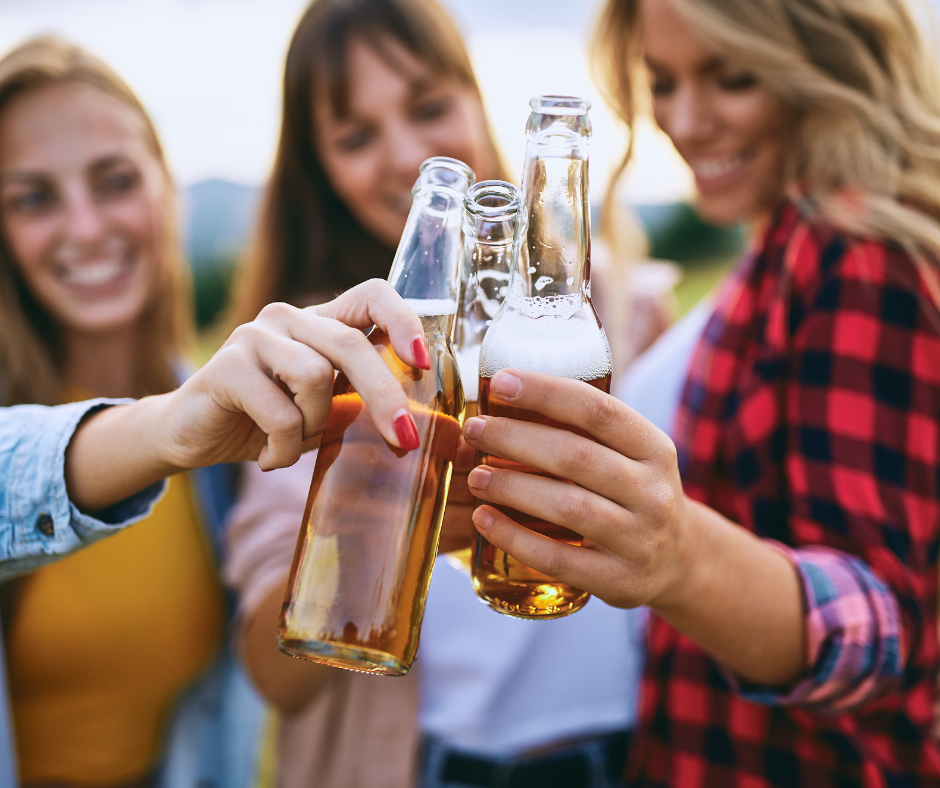
When it comes to socializing, alcohol can be a double-edged sword. On one hand, it helps us feel more at ease in social situations by reducing anxiety and enhancing our sense of empathy and trust. On the other hand, alcohol consumption can impair our ability to accurately interpret emotional expressions and adopt someone else’s mental perspective. This can lead to miscommunication and misunderstandings, potentially escalating tensions between different social groups.
So, how does alcohol work its magic on our brain? Let’s find out.
Dopamine: The Brain’s Reward Chemical
Drinking alcohol has the power to boost dopamine levels in our brain, a natural brain chemical responsible for feelings of pleasure and reward. This increase in dopamine contributes to the sense of contentment and pleasant euphoria we experience while drinking, making us more sociable and relaxed. This same phenomenon also contributes excessively to drinking out of boredom.
However, it’s important to remember that alcohol can also increase aggression in some individuals.
In addition to making us feel good, increased dopamine levels can help us better understand someone else’s mental perspective. This enhanced empathy, along with the reduced anxiety, can make it easier to form connections and bond with others in social settings.
Reducing Anxiety: Tension Reduction Theory
The Tension Reduction Theory indicates that drinking alcohol may assist in relieving stress and anxiety. It suggests that alcohol serves as a negative reinforcer, allowing individuals to reduce their tension levels. This temporary alleviation can make individuals with social anxiety disorder more comfortable in social situations, using alcohol as a coping mechanism. However, relying on alcohol to reduce anxiety can quickly worsen the symptoms of the disorder and create an unhealthy cycle of substance abuse, suggests Rajita Sinha from Yale School of Medicine in her research Chronic Stress, Drug Use, and Vulnerability to Addiction.
Alcohol has the power to disrupt the activity of various brain circuits, which can reduce our anxiety. It can further decrease fear at higher doses, providing us with a feeling of relief. This effect of how alcohol acts can be observed even in small social settings with just three group members.
Enhanced Empathy and Trust
Empathy is our incredible ability to understand and truly connect with the feelings of others, gain insight into their perspective and put ourselves in their shoes. Alcohol consumption can enhance empathy, reflecting alcohol’s actions on our brain and social behavior. Alcohol can help us become more empathic, trustful, and even generous, fostering bonding among social groups.
However, it’s important to bear in mind that this increased bonding within our in-groups could come at the expense of our interactions with those outside of our groups, potentially leading to discrimination and tension between in and out groups.
Alcohol’s Impact on Social Cognition

While alcohol can help reduce social anxiety and enhance empathy, it can also impair our ability to accurately interpret emotional expressions and adopt someone else’s mental perspective. This can lead to miscommunication and misunderstandings, potentially affecting our social interactions and relationships.
Let’s take a closer look at how alcohol consumption affects our ability to recognize facial expressions and understand the perspectives of others, as we reflect alcohol’s actions when alcohol appears to play a role in social interactions.
Impaired Facial Expression Recognition
Alcohol can have an adverse effect on our cognitive processes, especially poor memory function and our ability to interpret alcohol expressed emotional expressions in faces. This can significantly interfere with our daily lives and interactions with others. This inability to read the emotions of others can result in miscommunication, misunderstandings, and uncomfortable social situations.
A study conducted on the 64 students Roehampton University reports, “acute alcohol consumption decreases ability to detect asymmetry in faces and reduces preference for symmetrical faces over asymmetrical faces.” (An explanation for enhanced perceptions of attractiveness after alcohol consumption, Halsey et al., 2010)
This misinterpretation of emotional expressions can significantly impact our social interactions and relationships.
Hindered Perspective-Taking
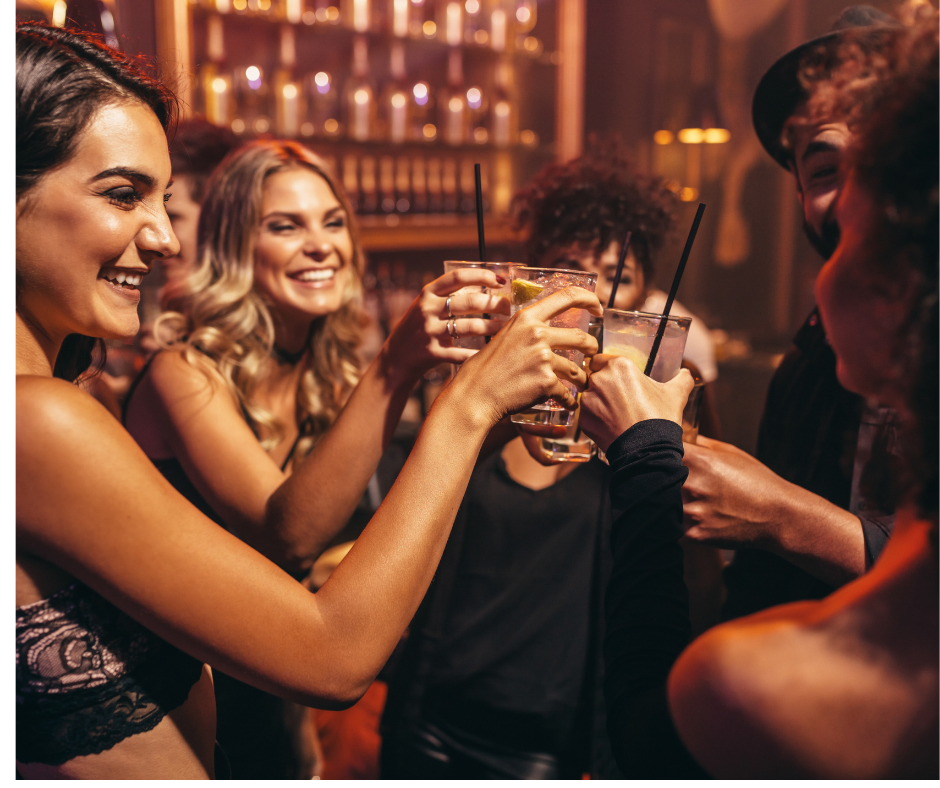
Developing perspective-taking skills involves understanding and considering others’ mental perspective, looking at a situation from a viewpoint different from our own. These skills are crucial for forming meaningful relationships and navigating social situations. However, alcohol consumption can have a detrimental effect on our ability to interpret social cues, such as facial expressions and body language, leading to misinterpretations of the intentions of others and potentially creating misunderstandings and conflicts.
Impaired perspective-taking can have a significant impact on our lives, leading to misunderstandings and conflicts, difficulty in forming meaningful relationships, and increased social anxiety. Being proactive by setting limits, opting for non-alcoholic alternatives, and being aware of social dynamics can help reduce the effects of impaired perspective-taking.
In-Group Bonding and Out-Group Discrimination
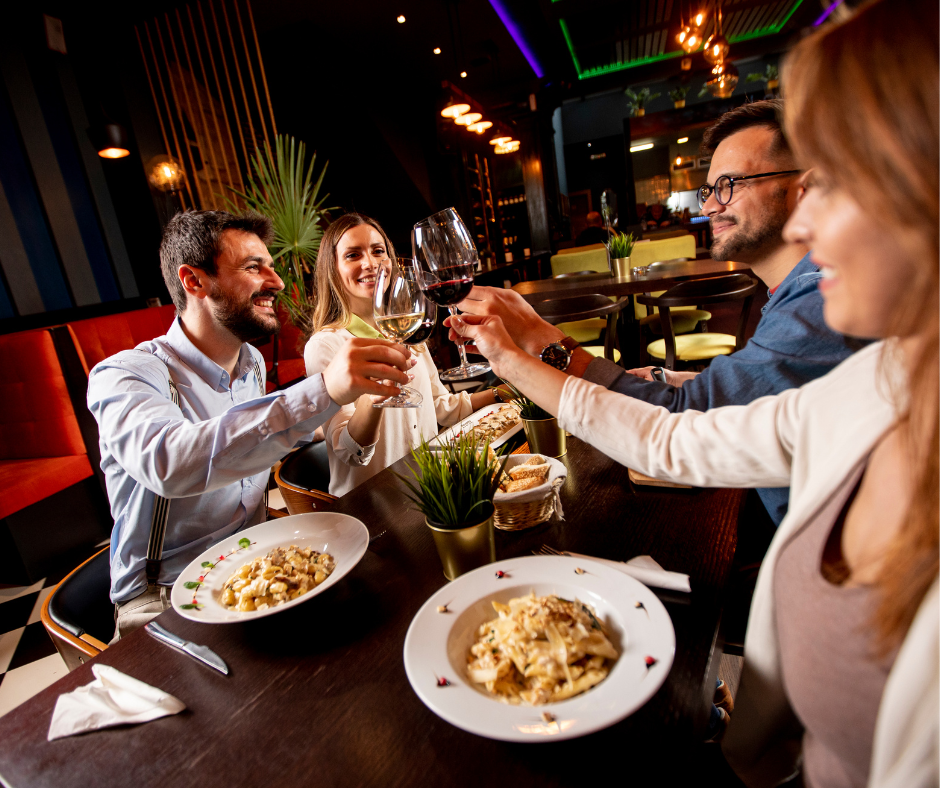
Alcohol seems to foster a stronger bond with members of our in-groups, creating a sense of camaraderie and shared experiences. However, this increased bonding within our social circles can also lead to aggression and discrimination towards those who are not part of our immediate group, as alcohol increases aggression.
Let’s explore how alcohol can both strengthen connections within our social groups and exacerbate tensions with those outside of our groups.
Strengthening In-Group Connections
In-group bonding is an exciting process of forming a connection or sense of belonging with a group of people who share similar characteristics or interests. It often involves cultivating a shared identity and a sense of loyalty to the group, achieved through engaging shared experiences, frequent communication, and a focus on building trust and relationships. Alcohol consumption can be a great way to reduce social anxiety and foster a sense of camaraderie, ultimately leading to more enjoyable interactions and shared experiences within a social group.
However, it’s important to recognize that consuming too much alcohol can lead to impaired decision-making, increased aggression, and other negative behaviors that can harm relationships and create hazardous situations. Therefore, it’s crucial to find a balance between enjoying the social benefits of alcohol and avoiding its potential drawbacks.
Exacerbating Out-Group Tensions
Out-group tension is a phenomenon in social psychology that refers to the tension or conflict that arises between different groups of people who perceive themselves as being different from each other due to differences in race, ethnicity, religion, nationality, or other factors. Alcohol can lead to an uptick in aggression and hostility towards out-groups, as well as a rise in discriminatory behavior. This can be attributed to alcohol-induced myopia, which prompts people to focus on the current situation and disregard the long-term repercussions of their choices. Moreover, alcohol can lead to a decrease in empathy and an increase in impulsivity, both of which can result in heightened out-group tensions.
By setting clear limits, opting for non-alcoholic alternatives, and being aware of social dynamics, we can help ensure that alcohol does not increase out-group tensions and contributes positively to our social interactions.
The Double-Edged Sword: When Alcohol’s Social Effects Turn Negative
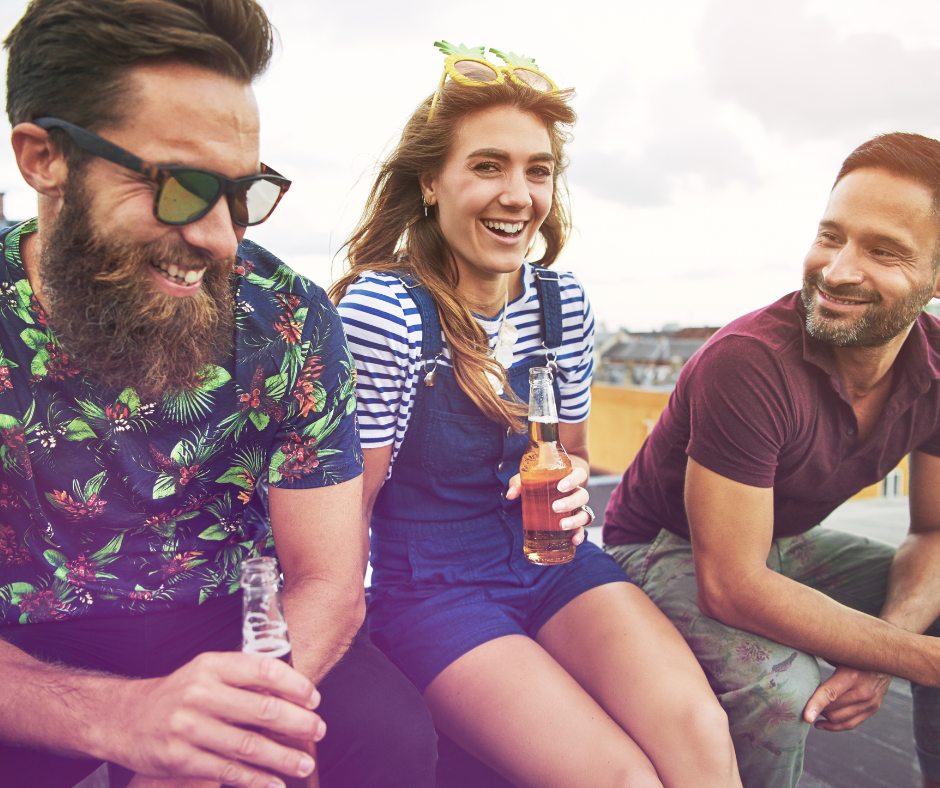
While alcohol can help reduce social anxiety and enhance empathy, it can also lead to negative consequences such as aggression, impaired judgment, risky behavior, and violence.
In this section, we will delve deeper into the potential dangers of excessive alcohol consumption, including alcohol abuse, poor decision-making, misperceived intentions, and the risk of addiction.
Alcohol Myopia Theory
The Alcohol Myopia. Theory suggests that alcohol consumption narrows our focus on immediate and salient stimuli while disregarding the potential consequences of our actions. This can impair our ability to identify potential danger, causing us to focus more on immediate pleasures rather than potential consequences.
By understanding alcohol myopia, I understand the alcohol problem. Theory, we can better recognize how alcohol affects our decision-making and its potential impact on our social interactions. This awareness can help us make more informed choices when consuming alcohol and monitor our behavior accordingly.
Misperceiving Social Cues
Social cues are a powerful form of indirect communication, consisting of:
- Nonverbal and verbal signals expressed through body language
- Facial expressions
- Tone of voice
- Words
They provide us with invaluable insight into our interactions and relationships with others, thanks to the findings of psychological science.
However, alcohol consumption can significantly hinder our ability to accurately read social cues, potentially causing misinterpretations and misunderstandings. This misinterpretation of emotional expressions can significantly impact our social interactions and relationships.
Being aware of how alcohol consumption affects our ability to read social cues can help us make more informed decisions when drinking and interacting with others.
The Slippery Slope to Addiction
Addiction is a chronic medical disease that involves compulsive drug or alcohol use despite harmful consequences. Regular social drinking can cause physical and psychological dependence on alcohol, which can result in addiction. This can have serious health implications, like liver damage, heart disease, and depression. It can also have a negative impact on relationships and finances.
2016 National Survey On Drug Use And Health by SAMHSA revealed that approximately 20% of individuals aged 12 to 20 were active alcohol users, while around 40% of young adults between 18 and 25 engaged in binge drinking, and roughly 10% were classified as heavy alcohol users.
By being aware of the potential risks associated with regular social drinking, we can take proactive steps to ensure that our alcohol consumption remains within responsible limits, protecting our health and well-being.
Strategies for Responsible Social Drinking

Now that we’ve explored the complex relationship between alcohol and social anxiety, as well as its effects on our brain and social interactions, it’s crucial to find a balance that allows us to enjoy the social benefits of alcohol while minimizing the risks and negative consequences.
In this section, we’ll offer practical tips for responsible social drinking.
Setting Limits
Knowing your limits and sticking to them is key when drinking alcohol in social settings. Health organizations suggest that men should not consume more than 14 drinks per week and women should not exceed 7 drinks per week to maintain a healthy lifestyle. By adhering to these guidelines and monitoring your blood alcohol levels, you can enjoy the social benefits of alcohol without putting your health at risk.
In addition to setting personal limits, it’s important to avoid drinking games and shots, which can quickly lead to overindulgence and impaired decision-making. By drinking in moderation and counting your drinks, you can ensure that you are drinking responsibly and minimizing potential negative consequences.
Choosing Non-Alcoholic Alternatives
Consider opting for non-alcoholic or low-alcohol beverages when participating in social drinking events. Non-alcoholic alternatives, such as:
- bottled drinks
- adaptogenic drinks
- mocktails
- kombucha
- coconut water
- sophisticated soft drinks
Can still provide the same social benefits as alcohol without the worry of overindulging.
Moreover, choosing non-alcoholic alternatives can offer additional health benefits, such as improved digestion, increased energy, and enhanced mental clarity. By incorporating these options into your social drinking routine, you can maintain a healthy balance and still enjoy the camaraderie and shared experiences that alcohol can provide.
Being Mindful of Social Dynamics
It’s essential to be aware of how alcohol may be affecting your interactions with others and adjust your behavior accordingly. By maintaining a heightened awareness of social dynamics, you can better understand how alcohol consumption may be impacting your relationships and avoid potential misunderstandings and conflicts.
By setting limits, opting for non-alcoholic alternatives, and being aware of social dynamics, you can enjoy the social benefits of alcohol while minimizing the risks and negative consequences associated with excessive consumption.
While alcohol can enhance sociability, its effects raise concerns. For those seeking assistance, our outpatient drug rehab programs offer a path to balance.
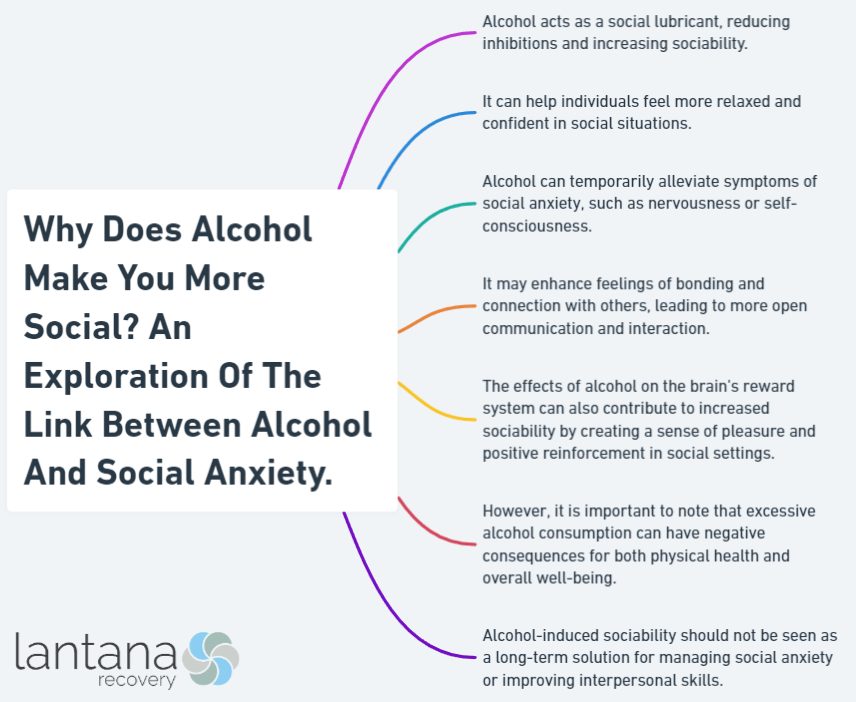
Summary
In conclusion, alcohol can be both a friend and a foe when it comes to social interactions. While it helps reduce social anxiety, enhance empathy, and foster in-group bonding, it can also impair our ability to accurately interpret emotional expressions and adopt someone else’s mental perspective. By setting limits, choosing non-alcoholic alternatives, and being mindful of social dynamics, we can enjoy the social benefits of alcohol while minimizing the risks and negative consequences. So, the next time you raise a glass, remember to drink responsibly and enjoy the magic of social connection.
Frequently Asked Questions
Why does drinking make me more sociable?
Alcohol can reduce sensitivity to negative facial expressions, making us less prone to anxiety and rejection. This makes us more likely to socialize in a comfortable and relaxed way.
What is social drinking?
Social drinking can be a fun and enjoyable experience, but it is important to know when to stop, drink responsibly, and enjoy a party without alcohol.
Moderate and occasional drinking can be part of an enjoyable celebration or leisurely outing with friends.
How can alcohol enhance empathy and trust?
Drinking alcohol in moderation can lead to increased feelings of trust and empathy towards others, creating an atmosphere of understanding and bonding among friends and social groups.
This can be beneficial in many ways, such as helping to build relationships, foster a sense of community, and even reduce stress levels. It can also be a great way to relax and enjoy time with friends and family.
What is the Alcohol Myopia Theory?
The Alcohol Myopia. Theory suggests that alcohol consumption can lead to a narrowed focus, causing individuals to prioritize immediate and salient stimuli while disregarding potential consequences.
This theory has been used to explain why people may engage in risky behaviors while under the influence of alcohol, such as driving while intoxicated or engaging in unprotected sex. It suggests that alcohol consumption can lead to a lack of self-control.
How can alcohol impair our ability to recognize facial expressions?
Alcohol can severely impact our capacity to interpret facial expressions, potentially resulting in confusion and miscommunication.
This can lead to misunderstandings and even conflict in social situations. It is important to be aware of the effects of alcohol on our ability to read facial expressions and to take steps to mitigate the effects.









